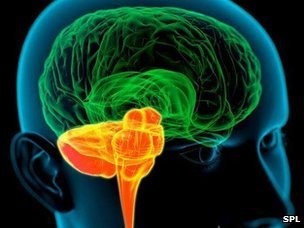Researchers from the University of Cambridge have developed a brain-training game that could improve the daily lives of people with schizophrenia.
They tested the computer-based game on a small number of patients who played the game over four weeks found improvements in memory and learning.
This could help people to get back to work or studying after a diagnosis.
Schizophrenia is a mental health condition that causes a range of psychological symptoms, from behavior changes to hallucinations.
Many patients also experience cognition problems, which affect their memory and ability to function independently.
The memory game has a wizard theme with various levels of difficulty.
It asks players to enter rooms, find items in boxes and remember where they put them, testing their so-called episodic memory.
Prof. Barbara Sahakian, from the department of psychiatry at the University of Cambridge and who researched the impact of the game, said patients who played it made significantly fewer errors in tests afterwards on their memory and brain functioning.
She said this was an indication that they were better prepared to function in the real world.
Prof. Barbara Sahakian said treating the cognitive symptoms of schizophrenia was important, but slow progress was being made towards developing a drug treatment.
She added that the memory game could help where drugs had so far failed – with no side-effects.
The game is available as an app that anyone can play.
Although the results are promising, the research team said more research was needed on larger groups of patients to confirm the findings.
The researchers added that any memory training games had to be used in conjunction with medication and psychological therapies.
Researchers from Northwestern University, US, say bilingualism is a form of brain training – a mental “work out” that fine-tunes the mind.
Speaking two languages profoundly affects the brain and changes how the nervous system responds to sound, lab tests revealed.
Experts say the work in Proceedings of the National Academy of Sciences provides “biological” evidence of this.
For the study, the team monitored the brain responses of 48 healthy student volunteers – which included 23 who were bilingual – to different sounds.
They used scalp electrodes to trace the pattern of brainwaves.

Speaking two languages profoundly affects the brain and changes how the nervous system responds to sound, lab tests revealed
Under quiet, laboratory conditions, both groups – the bilingual and the English-only-speaking students – responded similarly.
But against a backdrop of noisy chatter, the bilingual group were far superior at processing sounds.
They were better able to tune in to the important information – the speaker’s voice – and block out other distracting noises – the background chatter.
And these differences were visible in the brain. The bilingualists’ brainstem responses were heightened.
Prof. Nina Kraus, who led the research, said: “The bilingual’s enhanced experience with sound results in an auditory system that is highly efficient, flexible and focused in its automatic sound processing, especially in challenging or novel listening conditions.”
Co-author Viorica Marian said: “People do crossword puzzles and other activities to keep their minds sharp. But the advantages we’ve discovered in dual language speakers come automatically simply from knowing and using two languages.
“It seems that the benefits of bilingualism are particularly powerful and broad, and include attention, inhibition and encoding of sound.”
Musicians appear to gain a similar benefit when rehearsing, say the researchers.
Past research has also suggested that being bilingual might help ward off dementia.


